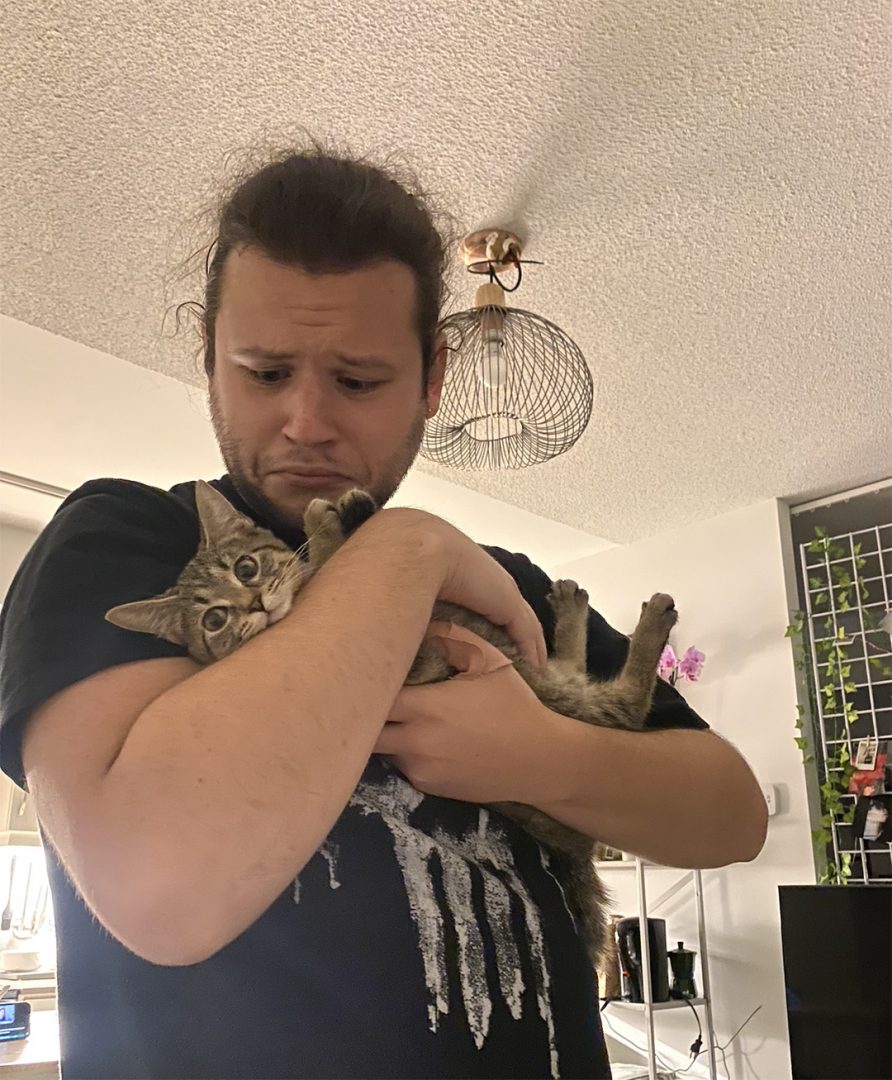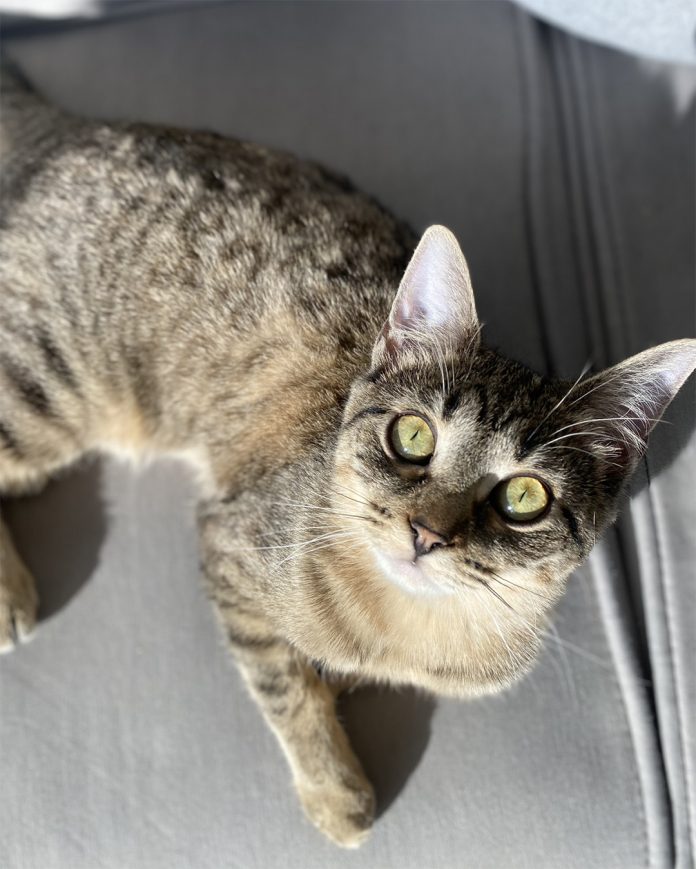Perhaps it’s to be expected in 2022 – a Toronto couple’s newly-adopted kitten came down with a fatal feline strain of coronavirus.
Jordan Thomas and his partner adopted their four month old cat Poe from the Humane Society of Durham Region in October, 2021. The couple had been planning on adopting for awhile and were ‘so excited’ when they were finally able to bring Poe back to their downtown apartment.
They bonded with Poe quickly as the pair were both working from home due to the COVID-19 pandemic. They’d already fallen in love with the kitten when they saw something wasn’t normal.

“We noticed she was low energy, didn’t want to play at all, she was hiding all the time, sleeping way more than a kitten should,” said Thomas, “then she started walking really weird, it was almost like lower paralysis.”
These symptoms appeared a month after they brought Poe home. While they had been warned that she’d had a cold at the shelter, serious symptoms came “out of nowhere,” according to Thomas.
They took Poe to the vet multiple times as her condition continued to worsen. More than $3,000 were spent on various tests, X-rays and treatments trying to figure out what was going on with their cat, but no clear diagnosis could be made.
“It got to the point where she couldn’t even stand up, we thought she would have to be put down,” said Thomas.
They rushed her to the emergency clinic, where they finally got a diagnosis. Poe had Feline Infectious Peritonitis Virus (FIPV), a strain of feline coronavirus with no known cure.
“The disease is usually progressive, almost always fatal,” said Michelle Lovering, who worked as a Toronto Zoo vet before being promoted to Wildlife Care Supervisor.
According to Lovering, there are two kinds of Feline Infectious Peritonitis.
“Most strains are found in the gastrointestinal tract and don’t cause significant disease, it’s called feline enteric coronavirus,” said Lovering.
According to Lovering, coronavirus-specific antibodies are present in as many as 90 per cent of cats in adoption settings and in as many as 50 per of those in single-cat households.
Most of these cats will only have mild symptoms, but if the virus mutates, it becomes deadly.
“When the virus mutates it can infect white blood cells and then spread throughout the body. When this happens it is referred to as Feline Infectious Peritonitis Virus,” said Lovering, “an intense inflammatory reaction then occurs around vessels in the tissues where the infected cells circulate, specifically the abdomen, kidney and brain. It is the interaction between the immune system and the mutated coronavirus that causes the development of Feline Infectious Peritonitis (FIP).”
Not able to spend the estimated $2,000 it would have cost to keep Poe in emergency care overnight and not wanting her to be uncomfortable in her already fragile state, Thomas and his partner took Poe home. If she made it through the night, they planned to have her euthanized the next morning as she had already suffered serious neurological damage.
This is when they began their own research. Thomas found an online community of pet owners with similar experiences with FIPV who were able to offer them advice, support and information.
They were put in contact with a FIPV specialist and were able to begin drug treatments that night. The treatments are still being developed and are not guaranteed to work, but the couple was desperate.
To the pair’s relief, Poe stabilized and continued to improve as treatment went on. Now three months later, Thomas said she’s “basically a normal, happy kitten.”
Poe will be slowly taken off treatment in mid-February as her vet believes she has stabilized enough to live a normal life. However, Thomas said the possibility of a relapse looms over Poe, so a few extra trips to the vet are anticipated.
“It’s a really hard process because it’s so much money and you’re investing so much time and energy into your pet and you don’t even know if she’s going to get better,” said Thomas, “all you can do is hope.”




